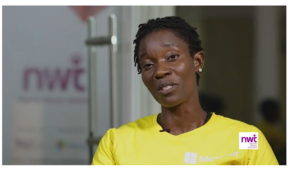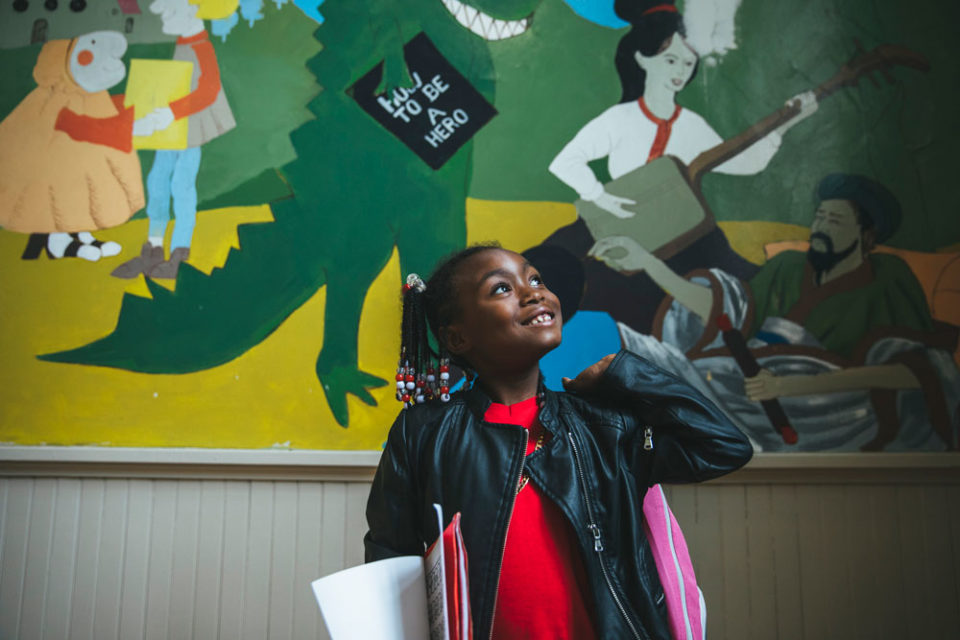Skills development programmes empower women to learn new skills and become role models in their communities. Meet two such women who are ‘Making What’s Next’
Female entrepreneurs in the Middle East and Africa face a wide variety of different challenges, including societal pressure on women to stay at home, a gender gap in the technology field, and structural disadvantages in fund-raising and investments. But, despite this they are overcoming many barriers to entering the digital workforce. In fact, one in three start-ups in the Middle East alone are founded or led by women.
A new generation of role models are making a real mark on the technology sector and propelling the economic growth of the overall region forward. Through empowerment and skills development programmes hosted in countries across the region, Microsoft is using technology to help create more opportunities for women to innovate, create and unlock the best opportunities for their future.
In commemoration of International Women’s Day, we are spotlighting two women who have benefitted from these programmes and are using the skills they’ve learned to inspire women and girls around them:
- Ngozi Aduloju
 With Microsoft’s support, the Technology for Social Change and Development (Tech4Dev) initiative, which includes Federal and State Ministries’ of Women’s Affairs across 12 states in Nigeria, established the Nigerian Women Techsters programme. This experiential learning programme is aimed at building digital literacy, coding, and analytical skills in young women. It’s a three-month course that includes technical training, mentoring, hackathons, and workshops — and has trained 2,400 women so far.
With Microsoft’s support, the Technology for Social Change and Development (Tech4Dev) initiative, which includes Federal and State Ministries’ of Women’s Affairs across 12 states in Nigeria, established the Nigerian Women Techsters programme. This experiential learning programme is aimed at building digital literacy, coding, and analytical skills in young women. It’s a three-month course that includes technical training, mentoring, hackathons, and workshops — and has trained 2,400 women so far.
Curious about the tech industry, Nigerian journalist and mother of four, Ngozi Aduloju, enrolled in the Nigerian Women Techstars training. “The Games Development training I received not only changed my life, but set many things in motion for my future, as well as the futures of the young girls and women around me,” she says. “I learned new skills that I did not think I would learn by my age.”
Ngozi is now a Games Developer. “As I learned more about games development so did my children. We became a team, studying and watching tutorials online together. That is the beauty of empowering a woman – you empower her generation and those around her as well.”
2. Ariela Leiba Cohen
 Microsoft collaborates with the Appleseeds Academy in Israel to ensure that all youth, especially those who have been underserved historically, have access to the digital and AI skills they need to join the new digital economy.
Microsoft collaborates with the Appleseeds Academy in Israel to ensure that all youth, especially those who have been underserved historically, have access to the digital and AI skills they need to join the new digital economy.
As a result of the partnership, over 114,000 people have received access to digital skills and computer science education training through online and in-person training in community centres and schools in FY18.
Ariela Leiba Cohen entered the programme hoping to gain more experience in the rapidly developing world of technology. “After working as a programmer for 20 years, I feared I was stuck on outdated technology that was not relevant anymore. I joined the programme hoping to catch up with the new things happening in the industry, to ensure I’m still relevant and still have plenty to offer,” she says.
She enrolled in a three-month, highly intensive web application development course offered by Microsoft and the Appleseed’s Academy. “Towards the end of the course, I confidently re-entered the job-seeking market knowing I was equipped a combination of relevant skills and experience and knowledge of the latest technology,” she says.
As part of her final project to complete the course, Ariela created an online platform to assist jobseekers in finding their dream jobs. Ariela also secured a full-time job as a technical product manager at a technology company.
Helping more women and girls #MakeWhatsNext
It is important to empower more women to enter the tech industry and drive economic growth, equality and innovation. In fact, bringing 600 million additional women to the ICT sector can boost the GDP of developing countries by an estimated US$13 billion to $18billion.
That’s why Microsoft launched an initiative calling on young women and girls to #MakeWhatsNext. The campaign raises awareness of the issues that cause girls to drop out of or lose interest in studying science, technology, engineering or mathematics (STEM), and aims to pique their excitement and educate them around how they can change the world — if they stay engaged.
The response to #MakeWhatsNext makes it clear that girls’ passion is strengthened when they see female role models who have created innovations that are used in our everyday lives. As the motto goes, “If you see it, you can be it.”
For more inspirational stories of women in technology, watch this video.





